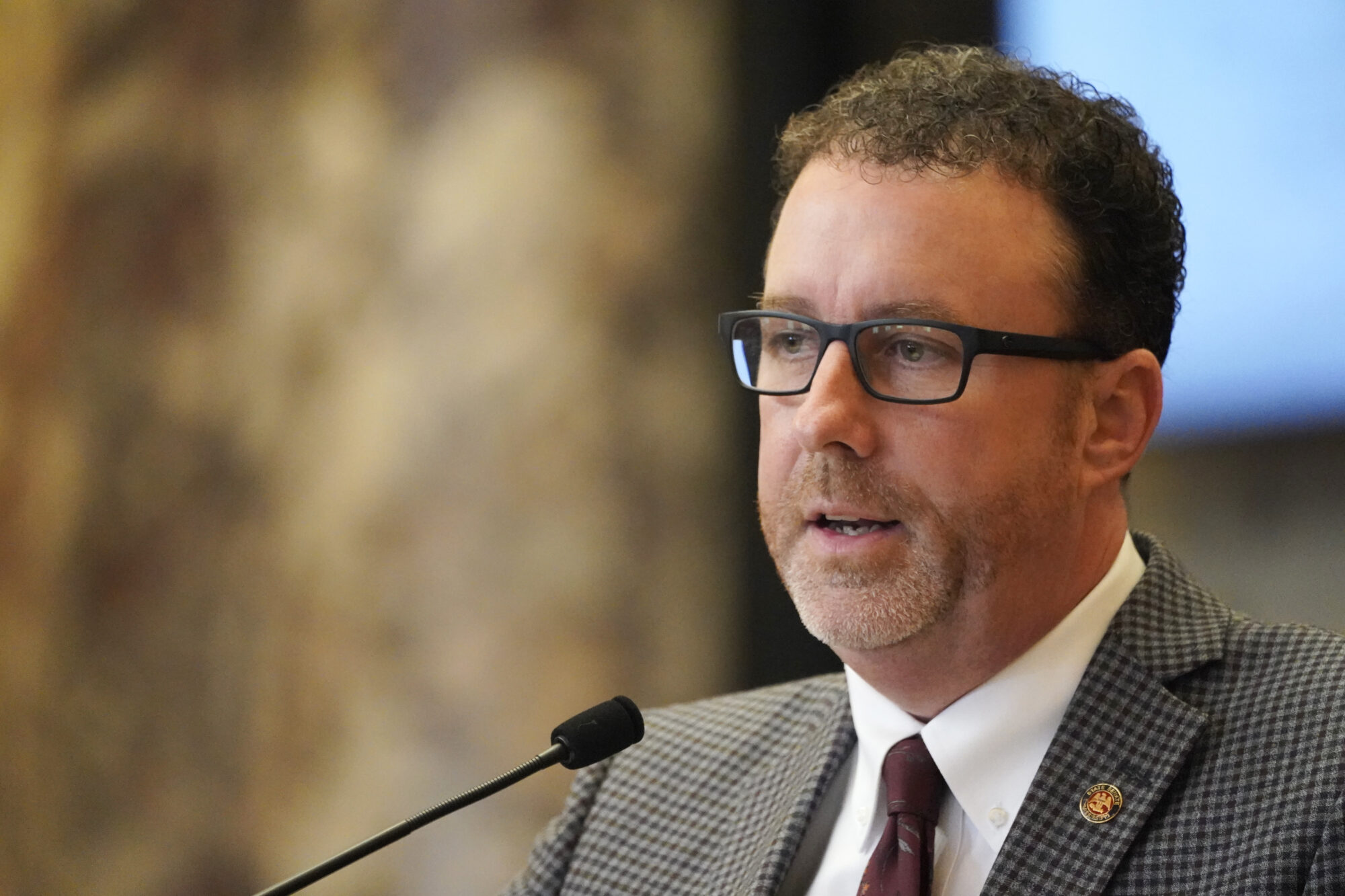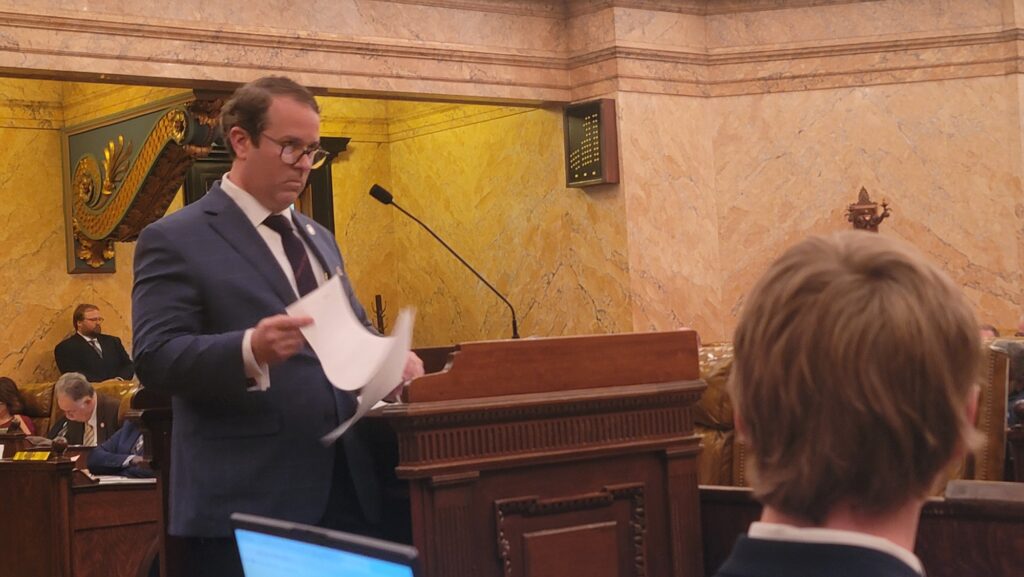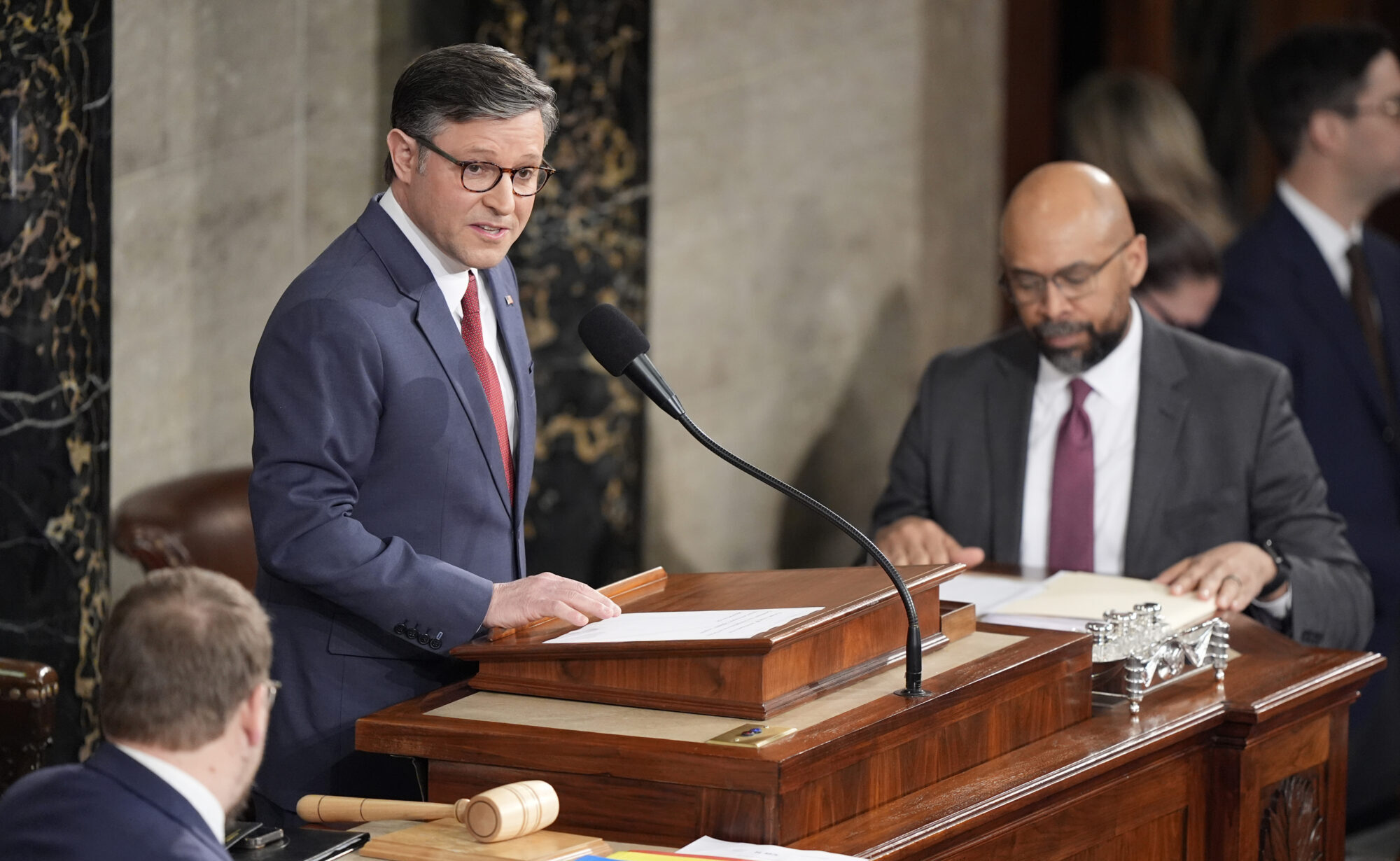
FILE - Mississippi state Sen. David Parker, R-Olive Branch, speaks during a debate at the state Capitol on Feb. 7, 2023, in Jackson, Miss. On Thursday, Jan. 11, 2024, Republican Lt. Gov. Delbert Hosemann named Parker as the new chairman of the Senate Accountability, Efficiency and Transparency Committee, which will give Parker influence over creating a new initiative process for Mississippi. (AP Photo/Rogelio V. Solis, File)
- Attempts to reach agreement between the House and Senate to reinstate the ballot initiative process have been unsuccessful in the past three legislative sessions.
With issues such as potential tax cuts and redistricting weighing heavy on legislators heading into the 2025 session, restoring the ballot initiative process in Mississippi is not top of mind for many lawmakers as they return to Jackson next week.
“I would say that I have not spoken to anyone, no one has specifically called me and asked me what or how we are going to be doing with the ballot initiative,” State Senator David Parker (R) told Magnolia Tribune this week, adding, “I have not gotten that opinion yet but typically on things like this there’s not really a discussion about it until we reach the Capitol.”
The Senate Accountability, Efficiency and Transparency Chairman was the lead lawmaker on the issue during the 2024 session. His chamber narrowly passed a measure in the waning days of the session that would have reinstated a ballot initiative process in Mississippi. The Senate vote on the bill was 26 to 21, well short of the two-thirds needed to have the measure placed on a statewide ballot asking voters to amend the state constitution.
The Senate legislation sought to raise the bar for passage of an initiative from a simple majority of votes cast to 67 percent. It also increased the number of signatures required to get on the ballot to over 200,000 spread across the state’s four congressional districts.
Senators supporting the increased requirements expressed the need to guard against high-dollar, out-of-state special interests seeking to push pet policy issues. Opponents said it was too restrictive and limited the voice of voters.
“I will probably be introducing the same bills that I did last year, or something very similar to that,” Senator Parker said. “The challenge we ran into was the fact that even when you made the parameters very stringent, we were not very close to a two-thirds majority for passage. So, when I get down there, I will be asking colleagues what their feeling is and get a better idea of what the lay of the land is when I get to the Capitol.”

The Mississippi House of Representatives rolled out its legislation aimed at reinstating the ballot initiative early in the 2024 session, indicating that the issue was a top priority in the chamber under new Speaker Jason White (R).
Now, other policy issues have moved up the list as lawmakers look to leverage political capital elsewhere during the second year of their four-year terms.
“As of right now, I don’t [plan to address it this session],” State Rep. Fred Shanks told Magnolia Tribune on Friday.
Shanks was the House’s lead lawmaker on the issue during the 2024 session. He said if the House does decide to move forward with another attempt to reinstate the ballot initiative, it would likely start back at what was proposed last session.
“The big deal is the signature threshold. I think we’d certainly be willing to work on that to try and get a deal done,” Rep. Shanks said. “I think we’ve shown the past three years that the House is willing to do something.”
The House bill, which met the two-thirds margin, passing by a vote of 80 to 39, would have required roughly 166,000 signatures across the four congressional districts and relied on a majority of votes cast for an initiative to be approved by voters.
Both the House and Senate proposals would have prevented changes to specific statutes in state law including abortion policy, financial determinations by the Legislature, the state retirement system, local law, and right to work laws.
Democratic lawmakers opposed the abortion restriction and sought to lower the signature and approval thresholds placed in the legislation by the supermajority Republican chambers.
In addition, proposals in both chambers would have allowed initiatives only to propose new laws and amend or repeal old laws, not change the state’s constitution as was established previously under the 1992 law.
Mississippi has been without a ballot initiative since the 2021 state Supreme Court decision on Medical Marijuana Initiative 65 invalidated the process on the basis that the signature threshold in the state constitution could not be met. The former initiative process required signatures to come from five congressional districts when Mississippi now only has four.
As stated by Senator Parker during the 2024 floor debate, 24 states do not have a ballot initiative process. Mississippi was among the 26 states that did prior to the state Supreme Court striking down the process.











